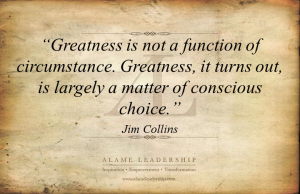Donna Moulds – Mantra Training & Development
Getting a good head start could be the difference between achieving your goals and not. The power in writing them down in indescribable and to say the least powerful.
I am writing this on the 1st January 2013
 Yes that’s correct on the first day of the new year I am writing a Blog on Goal setting, not because I don’t have a life but more importantly that I have a great life and want it to be better. The quote that is to the right is so true and I think we often forget that we do have a choice in everything we do. When we take 100% responsibility for our choices we take responsibility for our failures and our successes.
Yes that’s correct on the first day of the new year I am writing a Blog on Goal setting, not because I don’t have a life but more importantly that I have a great life and want it to be better. The quote that is to the right is so true and I think we often forget that we do have a choice in everything we do. When we take 100% responsibility for our choices we take responsibility for our failures and our successes.
I have already set my Goals for 2013 and am in the process of writing them down in detail and then writing my action steps to move me closer to these each day. Last year seemed to go so fast and before I and many others knew it Christmas was here. So I decided that I didn’t want the year to fly by without a plan for what I really and truly want for me, my family and my team at Mantra Training & Development in 2013.
So I thought this is no better time than to do another more detailed Blog on Goal setting. I had written one in the middle of last year and as I still believe very much in goals and action toward them I would expand even further.
I once heard Anthony Robbins say that if you are not growing you are dying, and I am still growing every day and will continue to do so in many ways. We can grow in all areas of our life, Financially, Spiritually, Relationships can grow and most importantly our knowledge can grow .
You may think you don’t set goals but in one way or another we all set goals, they can be a small goals of getting somewhere on time if you are often late. It could be to get a pay rise or promotion in your current career. We set bigger goals for fitness, and exercise or to give up smoking or drinking for a Month, year or for good. many people will have a New Years Resolution (Bad idea as they are often short lived)
I have been setting goals since I was very young; however I am not sure that I knew I was setting goals. I would decide I wanted something or to go somewhere and then I would find a way to do it. As I have looked back over many years of doing this and also being a keen observer of others, I have noticed a few key facts that are fairly consistent.
Why do we achieve some Goals and not others?
Let me see if I can shed some light on what I think are some of the reasons for success and failure to reach our goals.
If you fail to plan you plan to fail “Jim Rohn”
TRY and moving away from goals opposed to moving toward goals!
TRY – This word drives me crazy and is used so frequently when it is an excuse word. What I mean by that is, it lets you off the hook….. I will try to get there…..I will try to lose weight…….I will try to stop smoking…….I tried to call. Lets look at each one of these and break it down.
Someone asks you out and you say “I will try to get there” what they may have wanted to say is “I don’t want to go but if I say I will try and get there and don’t make it I know I tried
I will try and lose weight, really! How do you try, you either do lose weight by doing something differently, like walking round the block each day and eating smaller portions, or you don’t!
The last one is I tried to call…… What about, “I called and you didn’t answer” or “ I Did call and left a voicemail message”
You see I use this activity in my training…..I ask someone to try and pick up a chair, they pick it up and I say no I asked you to try, so they pretend its heavy and can’t lift it, again I say no now you didn’t pick up the chair. I often get looked at with frustration until it clicks…..You either pick up the chair or you don’t….NO TRYING! “Anthony Robbins”
Moving Away from Goals V Moving Toward Goals
If you don’t achieve your goals someone else will “Jim Rohn”
What do I mean by moving away from goals?
When you are moving away from something it is generally because you have a negative outcome where you are, so you want to move away from it (use Fear or Pain as a good example). Take a heart attack for example, you may need to lose weight change your diet and exercise, which you were not doing before, hence why you have had a heart attack. So when you get away from the risk you tend to go back to old habits.
What we should be doing consistently is setting toward Goals with positive outcomes, let me give you an example;
In August 2011 I set a goal to walk the Kokoda track and I was specific about a number of reasons for setting this goal. I understand this is a big one however the same concept applies t small goals as well.
Smart format applied
Specific – To walk the Kokoda Track in April 2012
Measurable – Researched the most reputable company to do the trek with, costed flights, trek gear and time frames that fitted in with my daughter being away on school holidays.
Achievable – A plan was required with a deadline and results focused to ensure I would be successful (it was truly achievable with a plan)
Relevant – It was relevant in a number of ways both physically and emotionally and also one of my highest values is growth “I was definitely going to grow
Timely – I had a number of deadlines and it was the perfect time in my life to do this journey
Whilst a lot more in-depth planning and reasoning behind this goal, I am sure you can see the concept. Take the time to think of a small goal you want to achieve and use the SMART format to set the goal. Then set some bigger Goals and have a clear action plan to start moving you in the direction of achieving them.
Here are a few additional steps you can take to ensure you keep momentum.
- Write them down and stick it on your bathroom mirror so you see them every day
- Take 10 Minutes a day to so something toward planning or achieving these goals, as little as 10 minutes a day can work.
- Say them out loud, tell people about it so they can support you getting there.
- Get an accountability buddy to keep you on track
- Even if you fall off the horse so to speak don’t give up just get back on the horse.
- Make sure you reward yourself when you achieve the goal or get to a major milestone.
I look forward to hearing about your goals and if you need any help to set goals feel free to contact Mantra Training & Development and we can help you not only set the goals, we can help you create a plan to achieve your goals in 2013.
Have an amazing year and remember to enjoy the journey.
Donna







